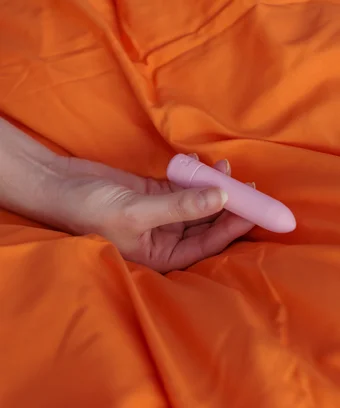Issued on: 23/11/2020 -

Uruguayan poet Ana Amoros posing with one of her books, is one of a group of 28 former political prisoners seeking justice for torture and sexual crimes committed by the military regime that ruled Uruguay between 1973 and 1985
Pablo PORCIUNCULA AFp
Montevideo (AFP)
When Ana Amoros fell prey to Uruguay's dictatorship, the first thing her torturers did was strip her naked and hit her with a riding crop. Then they raped her.
Amoros is one of a group of 28 former political prisoners seeking justice for torture and sexual crimes committed by the military regime that ruled Uruguay between 1973 and 1985.
Nine years after first filing a criminal complaint before Uruguay's courts, the women will present their case to the Inter-American Commission on Human Rights in March next year.
The women's quest for justice is made more difficult by a law passed a year after the country's return to democracy in 1986 that blocked investigation of dictatorship-era crimes.
That allowed some a fresh start, but for others like Amoros, it meant suppressing the truth about regime-sponsored violence against women.
"Women's bodies were, and still are, the spoils of war," said Amoros, now 72.
Considered one of South America's most progressive countries, Uruguay remains conflicted about its military past.
Torture, killings, enforced disappearances and other serious human rights violations were committed during the nearly 12-year dictatorship.
"Women's stories are only recently emerging. There is a masculine narrative, a very masculine narrative," said former political prisoner Luz Menendez, 66.
Menendez was arrested and held in La Tablada, an estate outside Montevideo used to torture leftist suspects.
She said her torturer had told her: "Girl, don't worry, you will leave here alive... but since you are a Communist, you will beg God to let you die, because we are going to drive you to the brink of madness."
- Jailed and tortured -
Like other leftist opponents of the regime, Amoros, Menendez, Brenda Sosa, Ivonne Klingler and Anahit Ahoranian were all in their 20s when they were imprisoned and tortured.
AFP reporters have collected their testimonies since 2019.
Amoros was a member of an armed anarchist group, the Popular Revolutionary Organization-Orientales 33. She was arrested on one of the group's premises she was helping to guard.
She was stripped naked as soon as she arrived at the barracks.
"They hit you with a riding crop that they used to hit horses with, they hit you all over your body. I was blindfolded, but I knew that there were a lot of men."
She remembers Colonel Gilberto Vazquez. He gave her a coffee and a cigarette, but when she refused to answer his questions, "he got angry," said Amoros in a whisper.
"That was the first time he raped me.
"I always thought if that happened, I'd bite him! Scratch him! I thought I would kick him in the genitals! I thought I would defend myself. But I did nothing. Nothing."
Vazquez is currently under house arrest for dictatorship-era crimes.
Klingler, who was a member of the Communist Party, was arrested after occupying the medical facility where she was a student.
"I never thought I would get to know such a horrifying underworld, where the main goal was to destroy another human being just because you could," she said.
- 'The Prod' -
Sosa was part of a logistics support cell for the Tupamaros, a violent urban guerrilla movement, when she was arrested at age 21 at one of the group's safe houses outside Montevideo.
At the time, the group -- to which the future leftist president Jose Mujica belonged -- "was at its peak, had a good image, like Robin Hood, and I had dreamt of joining it," said Sosa, now 69.
She was tortured, receiving electric shocks to her nipples and genitals with a device that her captors called a "prod."
During one session, she was brought face to face with a fellow member of her guerrilla group.
"They brought him in to witness me being tortured. To make him talk," she recalled.
Lawyers representing about 100 accused, mostly military, did not respond to AFP requests for interview.
- Women silenced -
Many of the women have been unable to speak to their families about their trauma.
Klingler, a retired doctor, said she couldn't even begin to explain it: "Can I talk about it? That's the first question. Can you explain it? Can you name it?"
Former Tupamaro member Ahoranian said that when the dictatorship ended, men took a more pragmatic view and convinced women not to pursue the crimes committed against them.
Their families told them, "That's it, we've lived, we've gone through it, let it be, close the chapter," said Ahoranian, a 71-year-old agronomist.
Amoros, a writer, is left to ruminate on an alternate life she might have led, if not for the scars left by the regime.
"I think about how I was only a young girl. I suffered a lot, it affected me sexually. I had a hard time feeling good about myself," she said.
© 2020 AFP
Montevideo (AFP)
When Ana Amoros fell prey to Uruguay's dictatorship, the first thing her torturers did was strip her naked and hit her with a riding crop. Then they raped her.
Amoros is one of a group of 28 former political prisoners seeking justice for torture and sexual crimes committed by the military regime that ruled Uruguay between 1973 and 1985.
Nine years after first filing a criminal complaint before Uruguay's courts, the women will present their case to the Inter-American Commission on Human Rights in March next year.
The women's quest for justice is made more difficult by a law passed a year after the country's return to democracy in 1986 that blocked investigation of dictatorship-era crimes.
That allowed some a fresh start, but for others like Amoros, it meant suppressing the truth about regime-sponsored violence against women.
"Women's bodies were, and still are, the spoils of war," said Amoros, now 72.
Considered one of South America's most progressive countries, Uruguay remains conflicted about its military past.
Torture, killings, enforced disappearances and other serious human rights violations were committed during the nearly 12-year dictatorship.
"Women's stories are only recently emerging. There is a masculine narrative, a very masculine narrative," said former political prisoner Luz Menendez, 66.
Menendez was arrested and held in La Tablada, an estate outside Montevideo used to torture leftist suspects.
She said her torturer had told her: "Girl, don't worry, you will leave here alive... but since you are a Communist, you will beg God to let you die, because we are going to drive you to the brink of madness."
- Jailed and tortured -
Like other leftist opponents of the regime, Amoros, Menendez, Brenda Sosa, Ivonne Klingler and Anahit Ahoranian were all in their 20s when they were imprisoned and tortured.
AFP reporters have collected their testimonies since 2019.
Amoros was a member of an armed anarchist group, the Popular Revolutionary Organization-Orientales 33. She was arrested on one of the group's premises she was helping to guard.
She was stripped naked as soon as she arrived at the barracks.
"They hit you with a riding crop that they used to hit horses with, they hit you all over your body. I was blindfolded, but I knew that there were a lot of men."
She remembers Colonel Gilberto Vazquez. He gave her a coffee and a cigarette, but when she refused to answer his questions, "he got angry," said Amoros in a whisper.
"That was the first time he raped me.
"I always thought if that happened, I'd bite him! Scratch him! I thought I would kick him in the genitals! I thought I would defend myself. But I did nothing. Nothing."
Vazquez is currently under house arrest for dictatorship-era crimes.
Klingler, who was a member of the Communist Party, was arrested after occupying the medical facility where she was a student.
"I never thought I would get to know such a horrifying underworld, where the main goal was to destroy another human being just because you could," she said.
- 'The Prod' -
Sosa was part of a logistics support cell for the Tupamaros, a violent urban guerrilla movement, when she was arrested at age 21 at one of the group's safe houses outside Montevideo.
At the time, the group -- to which the future leftist president Jose Mujica belonged -- "was at its peak, had a good image, like Robin Hood, and I had dreamt of joining it," said Sosa, now 69.
She was tortured, receiving electric shocks to her nipples and genitals with a device that her captors called a "prod."
During one session, she was brought face to face with a fellow member of her guerrilla group.
"They brought him in to witness me being tortured. To make him talk," she recalled.
Lawyers representing about 100 accused, mostly military, did not respond to AFP requests for interview.
- Women silenced -
Many of the women have been unable to speak to their families about their trauma.
Klingler, a retired doctor, said she couldn't even begin to explain it: "Can I talk about it? That's the first question. Can you explain it? Can you name it?"
Former Tupamaro member Ahoranian said that when the dictatorship ended, men took a more pragmatic view and convinced women not to pursue the crimes committed against them.
Their families told them, "That's it, we've lived, we've gone through it, let it be, close the chapter," said Ahoranian, a 71-year-old agronomist.
Amoros, a writer, is left to ruminate on an alternate life she might have led, if not for the scars left by the regime.
"I think about how I was only a young girl. I suffered a lot, it affected me sexually. I had a hard time feeling good about myself," she said.
© 2020 AFP













